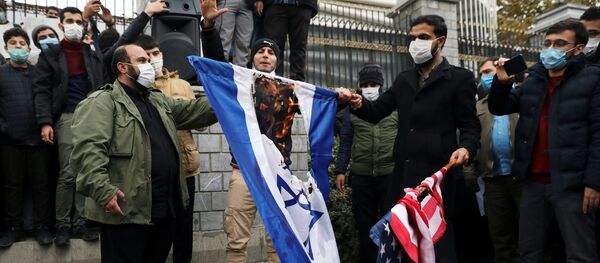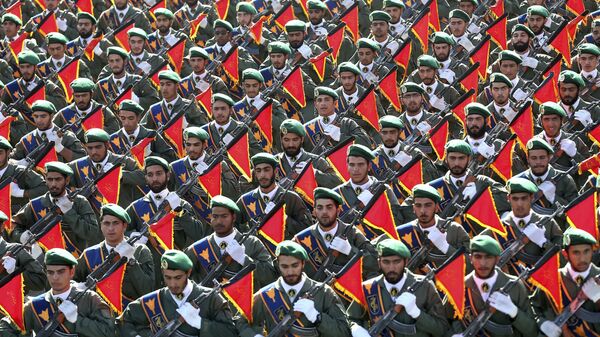The Revolutionary Guards’ Quds Force will ally itself with other “guardians of the Islamic homeland” to exact revenge on the “terrorists and their masters” for the murder of Mohsen Fakhrizadeh, Commander Brig. Gen. Esmail Ghaani has announced.
“The enemy does not dare to wage war against Iran like men. The end of Israel is approaching…This assassination is one of the desperate attempts of the arrogant and international thieves,” Ghaani said, his comments cited by local media.
Charactering Fakhrizadeh as the “pride of the school of Islam” and its efforts to break global monopolies on science and technology, Ghaani suggested that the “scientific growth, independence and self-sufficiency of Iran and the Muslim and freedom-loving nations” is what “hinders the realisation” of the “nefarious goals” of the Islamic Republic's enemies.
Ghaani, who was appointed chief of the Quds Force, Iran’s elite extraterritorial fighting force, in early January after the US assassination of Gen. Qasem Soleimani, did not specify how the Revolutionary Guard would exact “revenge” for Fakhrizadeh’s killing.
On 8 January, five days after Soleimani’s 3 January killing, the Revolutionary Guard lobbed over a dozen ballistic missiles at a pair of US bases in Iraq, leaving over 100 US military personnel with traumatic brain injuries. The Quds Force has also been known to provide training and arms assistance to Baghdad-allied Iraqi militias, which have been accused of carrying out a spate of rocket attacks against American military facilities in Iraq in recent months in a bid to force the US to pull out of the country.

Israeli media have speculated that Iran may react to Fakhrizadeh’s killing in a number of ways, ranging from attacks on Israeli embassies to missile strikes, to the ramping up of its alleged nuclear programme, to attempting to target Israel via Iranian ‘proxies’ in Gaza, Syria and Lebanon.
Senior Iranian officials including President Hassan Rouhani and Foreign Minister Mohammad Javad Zarif have accused Israel of Friday’s assassination attack, but have yet to provide their evidence. Israeli officials have made no formal comment on the killing, although Israeli media have suggested that it was part of a long-running Israeli “strategic plan” to sabotage Iran’s alleged covert nuclear weapons programme. Iran has long denied that it has any intention of pursuing a nuclear bomb, and has repeatedly criticised Israel for flouting the Non-Proliferation Treaty and being the only nation in the Middle East with an actual nuclear arsenal.


